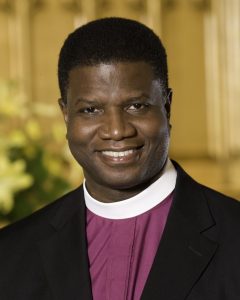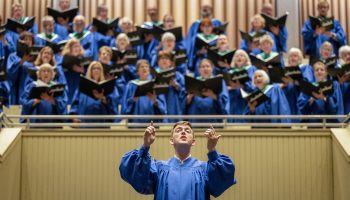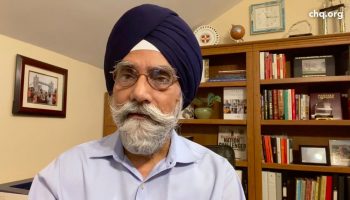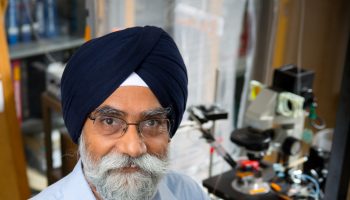As bishop of the Episcopal Diocese of Maryland, the Rt. Rev. Eugene Sutton leads a large community — one that includes more than 100 congregations and 23 schools — on a journey to find faith and inner peace. Sutton, a co-founder of Contemplative Outreach of Metropolitan Washington, uses his role as a spiritual leader to influence social change nationwide.
But Sutton knows fighting problems like racism and violence is not easy, even with faith as a driving force.

“Those of us who regularly attend an Episcopal church renew our baptismal vows several times a year,” he said in a 2015 statement following the death of Freddie Gray. “At the renewal, the presider asks this question: ‘Will you strive for justice and peace among all people, and respect the dignity of every human being?’… That’s one of the most difficult vows for all of us to keep in a nation that has struggled with the sin of racism since its inception.”
At 2 p.m. Friday, Aug. 24, in the Hall of Philosophy, Sutton will represent progressive Christianity during the Institution’s ninth and final Interfaith Friday of the season. Sutton will engage in interfaith dialogue with the Rt. Rev. V. Gene Robinson, Chautauqua’s vice president of religion.
In 2014, Sutton was named one of 14 Faith Leaders to Watch by the Center for American Progress. This recognition was in response to Sutton’s opposition toward gun violence, which included faith-based protests.
At the core of his activism, Sutton said he is motivated by God.
“My brothers and sisters, don’t expect me or anybody else to be the savior of this situation we find ourselves in today,” he said in the 2015 statement. “I am not a savior … but I serve a Savior. My Savior is not afraid to weep, not afraid to get angry, not afraid to say and do the right thing because it’s hard, not afraid of anyone or any neighborhood — and not afraid of fear.”
As an African-American, Sutton has spoken in favor of the Black Lives Matter movement and has commented on police violence. But he also acknowledges that large social movements, like those against gun and police violence, encompass many communities.
“People of goodwill of all races across our nation are outraged that black lives still seem to matter less than other lives in our communities,” he wrote in a column titled “Fighting an Unholy Trinity of Racism, Poverty and Violence.”
Sutton, who contributed to the book Reclaiming the Gospel of Peace: Challenging the Epidemic of Gun Violence, said the nation has significant strides to make in order to create complete racial equality.
“More than our political affiliation, our educational achievement or our religion, studies indicate that the color of our skin is a bigger factor in how we each view the state of racism, poverty and violence in America,” he wrote in “Fighting an Unholy Trinity.”
Despite the long road ahead, Sutton said he has faith that Episcopalians — coupled with all courageous advocates — will build a better future.
“In spite of our weariness of still dealing with race issues that should have been put behind us long ago, I’m gratified that so many of my fellow Episcopalians are willing to have the difficult conversations about racism, do the work of justice, work to eradicate poverty and violence, and to seek reconciliation within their communities,” he wrote in the column. “I am heartened when I see my white brothers and sisters hold up signs at rallies and other public events that say, ‘BLACK LIVES MATTER.’ ”




